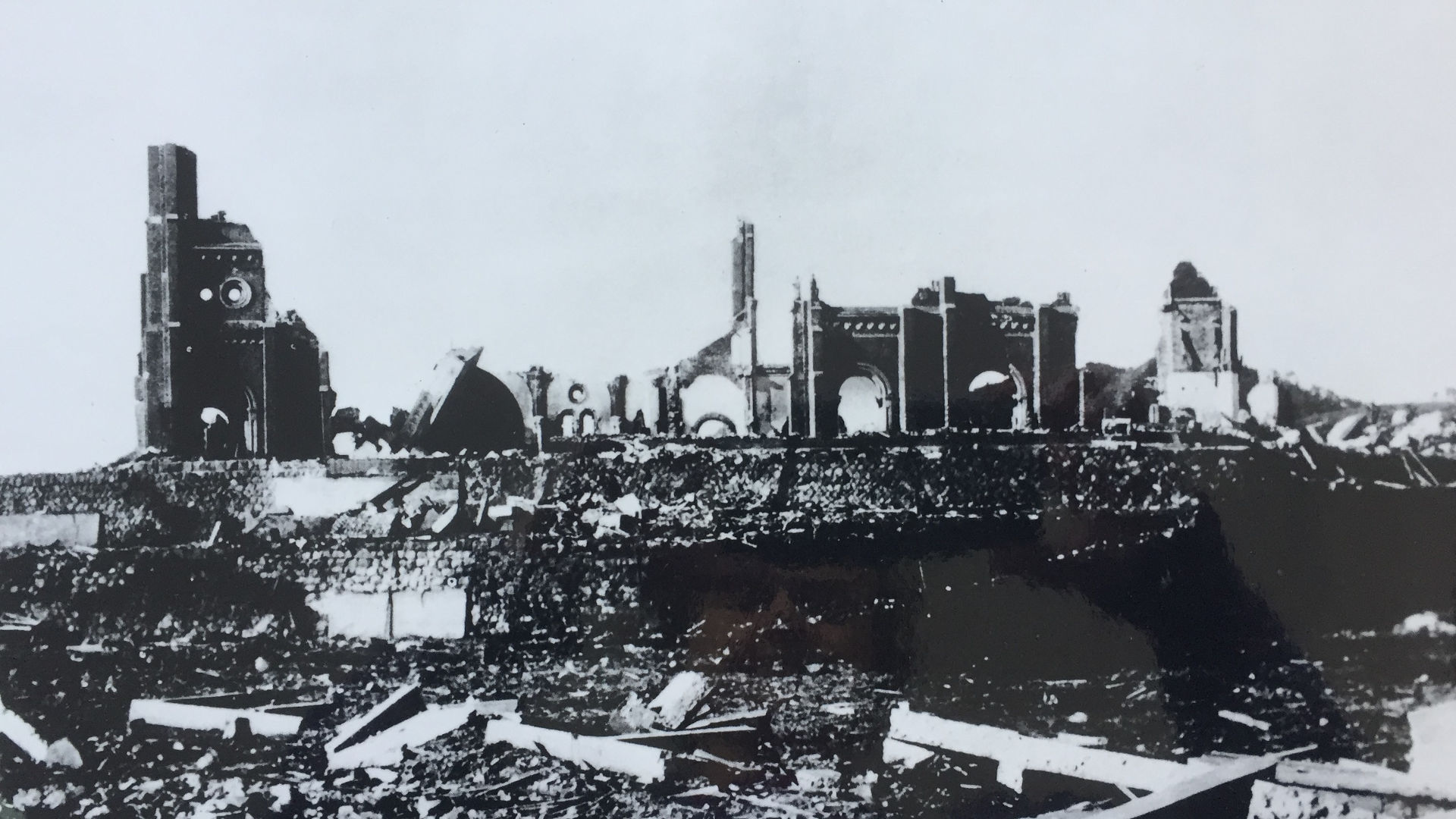Aims
- To continue as an active partner of the International Campaign to Abolish Nuclear Weapons (ICAN)
- To celebrate the entry into force of the Treaty on the Prohibition of Nuclear Weapons (TPNW) in January 2021
- To campaign for government acceptance of the TPNW
Background: Treaty on the Prohibition of Nuclear Weapons
Basic facts about the TPNW
- The Treaty on the Prohibition of Nuclear Weapons (TPNW) is the first comprehensive global nuclear weapons ban, initially supported in 2017 by 122 countries, that is 2/3 of the membership of the UN.
- It entered into force on 22 January 2021. As at 1st February 2021, there were 86 signatories and 52 states-parties, and these numbers continue to grow.
- The treaty prohibits signatories from developing, testing, producing, manufacturing, transferring, possessing, stockpiling, using or threatening to use nuclear weapons, or allowing nuclear weapons to be stationed on their territory. It also prohibits them from assisting, encouraging or inducing anyone to engage in any of these activities.
- It includes landmark obligations for states-parties to assist victims of nuclear weapons use and testing and a start to remediation of environments contaminated from nuclear weapons use and testing.
- It creates a new international standard for nuclear weapons: they are now illegal under international law.
- Previous weapons prohibition treaties such as the Chemical and Biological and Anti-Personnel Mine Ban Conventions prove that it is possible to shame countries into compliance even without official endorsement. Weapons possessors that have not joined the treaty cannot escape its influence.
The Background to TPNW
The battle over the introduction of the TPNW raged in the UN for over three years. Accident, miscalculation or design faults were seen as the main threats to be addressed. All 9 nuclear powers boycotted the process and the US led the effort to block TPNW by sending out letters to all signatories to withdraw. Russia, US, UK and France remained united against it, but in contrast China tweeted, “we have always been advocating complete prohibition and we make a continuous efforts towards a nuclear weapon free world”. Details of UK opposition to TPNW.
False claims that TPNW is a threat to the Nuclear Non-Proliferation Treaty (NPT) abound, whereas actually they are completely compatible. However President Obama sent out an order to many countries to desist from supporting the treaty; five of those countries, Belgium, Germany, Italy, Holland and Turkey host nuclear weapons. Japan and South Korea also boycotted the Treaty as naive and dangerous, asserting that it could increase the risk of nuclear use. However Antonio Guterres (Secretary General of UN) has said of the treaty, “It is clear that we will be only be safe on the day that nuclear weapons no longer exist.”
The people’s view is often very different from their governments; for example surveys show that over 70% of Australians, Norwegians, Swedes, Japanese, Finns and Italians and 65% of Americans are now in favour of TPNW. Many supporting programmes such as “Don’t bank on the Bomb” created by the organisation PAX in conjunction with ICAN, are becoming ever more significant and for instance 400 cities in the world have endorsed TPNW, indicating a groundswell of popular opinion in favour of its adoption.
Global financial institutions, bound by international law and keen to establish themselves as responsible investors, will be increasingly hesitant of investing in these ‘controversial’ weapons now they have been delegitimised by the majority of nations. Countries signatory to the treaty will be obliged to refuse any sort of assistance to nuclear-armed states in respect of these weapons. Read the report – Investing In Change
TPNW challenges the entire logic of deterrence. At the present time we are in a state of extreme peril with the 1947 Doomsday Clock set at 100 seconds to midnight. This is the most dangerous period since the Cuban crisis of 1962 and tensions between the US and China and US and Russia are the worst in decades.
However in the first few weeks of 2021, since the change of the presidency in the USA there has been a new and significant development in bilateral and multilateral nuclear policy. On 26 January, only 4 days after the TPNW came into force, the United States and the Russian Federation agreed to extend the bilateral cap on U.S. and Russian nuclear arsenals, the New Strategic Arms Reduction Treaty (New START) for five additional years.
Non-nuclear states which are signatories of NPT already have an obligation not to acquire nuclear weapons but the Treaty also adds that states are not to seek, induce or assist anyone to engage in prohibited activity possession and further use of nuclear arms. This already rules out nuclear arrangements in existing alliances such as NATO and the Asian nuclear alliance of Japan, South Korea and Australia. So far, countries in such alliances have not joined the TPNW, because if there was for example a major power confrontation in Asia, the TPNW would prohibit a state from calling upon a nuclear power to threaten action on their behalf; this would effectively neutralise their nuclear alliance.
Human Centred Security
With the introduction of TPNW we see a paradigm shift, away from the security of states and towards human centred security and to an affirmation of international humanitarian and human rights law and this change is out there for the whole world to see. That is possibly the most important thing about it.
The International Red Cross has stated that nuclear weapons are both morally unacceptable and irreconcilable with international humanitarian law. In 2018 the US Human Rights Commission stated that nuclear weapons are incompatible with UN Article 3 in which every human being has the inherent “Right to Life”. TPNW counters the current framework of exclusive interaction at the state level towards individual human rights. TPNW is a threat to the theory of deterrence because the nuclear threat is illegal. Nukes are not an acceptable basis for security.
This idea reinforces the obligation for nuclear disarmament which is cited in the TPNW preamble and provides a path to a world of free of nuclear weapons. Non-nuclear-weapon states have been calling for decades for nuclear disarmament in the United Nations forum and via the NPT but have seen that nuclear-armed states have not moved in any decisive way to a nuclear free world in spite of their clear obligations under the NPT. They have therefore decided, with TPNW, to create a new path towards getting nuclear disarmament moving again in conjunction with the NPT.
The TPNW marks the beginning of the end of the military hegemony of the nuclear-armed powers as nation after nation asserts its right to live in a world free of the threat of nuclear annihilation by deliberate act or, far more likely, a miscalculation. In time the nuclear powers may be seen as dangerous outdated anomalies. Is there cause for optimism? Slavery was abolished, women’s rights established, chemical and biological warfare banned, land mines; yes, let’s keep going on behalf of future generations.
Acknowledgements:
- John Burroughs, Lawyers Committee on Nuclear Policy, New York
- Peter Kuznick, Professor, History, American University, Washington DC
- ICAN website
David Collins, February 2021
Campaign progress and news
- Lakenheath
- Nuclear Risks
- Nuclear Weapon Ban Ratified!
- Hiroshima/Nagasaki 75th Anniversary, 2020
- Happy birthday Bruce!
- Bruce Kent writes about the UN and nuclear disarmament
- The case against nuclear weapons
- UK Trident, Nuremberg, the 1996 World Court Judgment, and now the Treaty to Prohibit Nuclear Weapons
- Bruce Kent – Why I support the #StopTrident demo
- Press release: MAW backs Corbyn “no”



